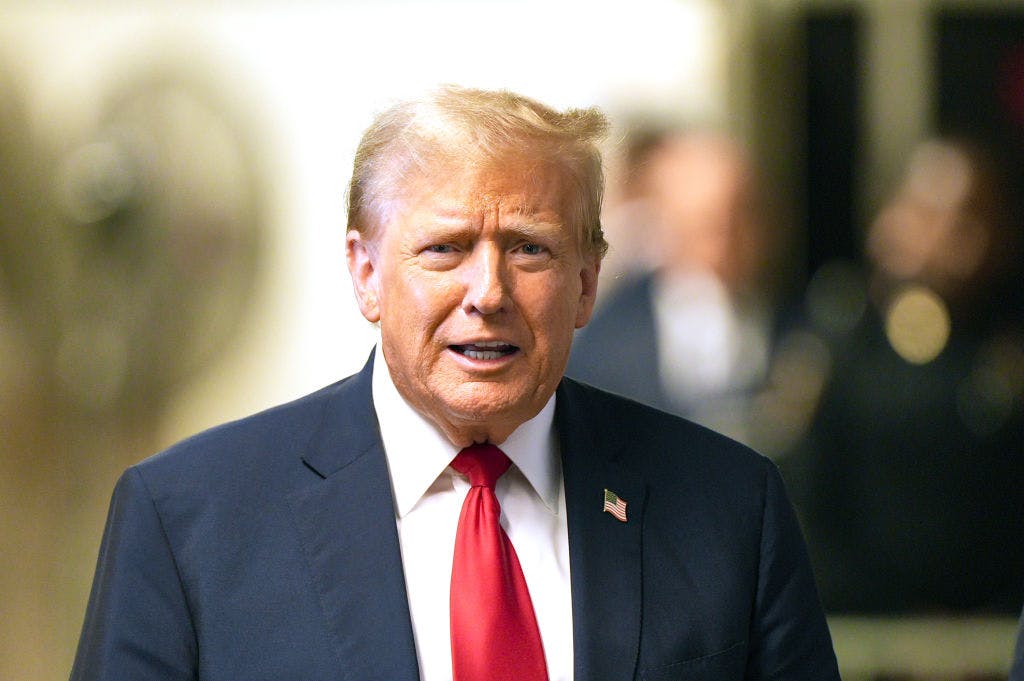Alvin Bragg’s Secret Strategy To Convict Trump of a Felony? Add Two Misdemeanors Together, and Hope a Jury Buys It
The district attorney hopes that his prosecutorial calculus of a misdemeanor + a misdemeanor = a felony works in court.

The disclosure at Manhattan criminal court that District Attorney Alvin Bragg intends to argue that President Trump falsified business records — a misdemeanor — in the service of a conspiracy to promote his re-election — another misdemeanor — could renew questions about the case just as trial is under way.
Mr. Trump is charged with 34 counts of falsifying business records in the first degree. Garden variety falsification is a misdemeanor, but Empire State law makes it felonious when the legerdemain is committed when the “intent to defraud includes an intent to commit another crime or to aid or conceal the commission thereof.” That second crime needs only to be alleged, not proven beyond a reasonable doubt.
Mr. Bragg has been coy with what that second charge might be, a resilience that prompted speculation that it could even involve a federal transgression. Mr. Trump was, after all, running for the highest federal office in the land. The district attorney, though, appears to have settled on a state crime, likely out of concern that a federal one would have prompted a renewed push to transfer the case to federal court.
One of Mr. Bragg’s deputies, Joshua Steinglass, spilled the beans on the second crime, disclosing that it is “Conspiracy to Promote or Prevent Election.” That statute interdicts “any two or more persons who conspire to promote or prevent the election of any person to a public office by unlawful means and which conspiracy is acted upon by one or more of the parties.”
This second crime notes that violators “shall be guilty of a misdemeanor,” just like the falsification of business records with which Mr. Trump has been charged. Another one of Mr. Bragg’s deputies, Matthew Colangelo, in his opening statement alleged that Mr. Trump, the then-publisher of the National Enquirer, David Pecker, and Mr. Trump’s former attorney, Michael Cohen, “formed a conspiracy to influence the election.”
Conspiracy exists when two or more people form an agreement to violate the law, and then take one concrete step toward actualizing that intention. Prosecutors will try to convince the jury at Manhattan that the “catch and kill scheme” between the presidential candidate, publisher, and legal fixer was such a scheme. Mr. Trump’s attorneys argue it was standard editorial practice.
Mr. Colaneglo’s accusation that Mr. Trump engaged in “a criminal scheme to corrupt the 2016 presidential election” is another reference to this second crime, but it also provides clues as to how the prosecution intends to tell this tale to the jury. Rather than focus on Mr. Trump’s relationship with a porn star, Stephanie Clifford, known as Stormy Daniels, it appears they will cast the case as akin to Special Counsel Jack Smith’s election interference one.
Mr. Bragg has sought to liken his prosecution of Mr. Trump to business as usual. When his indictment was unveiled he noted that the case is “like so many of our white collar cases. Someone lied again and again to protect their interests and evade the laws to which we are all held accountable.” He will have to convince a jury that the arrangement with Mr. Pecker and Cohen — funded with Mr. Trump’s own money — amounted to a cognizable conspiracy.
It does not appear, though, that this prosecution strategy is like so many of Mr. Bragg’s other cases. Even the New York Times writes that it “could identify only two other felony cases in Manhattan over the past decade in which defendants were indicted on charges of falsifying business records but no other crime.” Now that the second crime is known, Mr. Trump’s defense could push Mr. Bragg to explain — before the jury — as to why it was not charged.

